For Mild Steel Shrinkage
Get Latest Price| Payment Type: | L/C,T/T |
| Incoterm: | FOB,CFR,CIF |
| Min. Order: | 1 Set/Sets |
| Transportation: | Ocean,Land |
| Port: | Dalian,Qindao |
| Payment Type: | L/C,T/T |
| Incoterm: | FOB,CFR,CIF |
| Min. Order: | 1 Set/Sets |
| Transportation: | Ocean,Land |
| Port: | Dalian,Qindao |
Brand: Lijian
Material: Steel
MOQ: 1 Set
Certification: Other
Type: Tunnel Formwork
Surface Treatment: Painted Or As Customer Requirement
Application: Tunnel Engineering
Tolerance: Gb Or As Customer Requirements
Design: Provided By Li Jian
| Selling Units | : | Set/Sets |
| Package Type | : | According to customers request |
The file is encrypted. Please fill in the following information to continue accessing it
High strength ultra toughness low shrinkage concrete
What is Plastic Shrinkage Cracking? This phenomenon happens when the concrete is still plastic, soon after pouring. They’re an all too common type of shrinkage cracks in concrete slabs, generally emerging parallel to one another. The cracks are usually shallow in depth and rarely cross the slab perimeter. What Causes Plastic Shrinkage Cracks? Though unattractive, concrete plastic shrinkage cracks seldom affect the durability and/or strength of floors or pavement. But it’s important to understand the key causes to minimize future development. Rapid Surface Moisture Evaporation This is the most common cause of plastic shrinkage cracking. It occurs when the surface moisture evaporates at a faster rate than the bleed water can rise to the surface for replacement. Generally, a meniscus forms between the aggregate and cement particles when the water recedes underneath the concrete surface. This causes the development of a tensile force between the surface layers. Once the surface begins to set and develops an adequate tensile strength, cracking won’t occur. But if rapid surface evaporation occurs when the concrete is still plastic, cracks forms as the concrete continues to set.
A-ecc is an ultra-high continuity cement-based composite with high strength, high ductility, high toughness and high durabilit.y through material design and adjustment, and can show strain hardening and multi-point cracking in tension
Typical application of traditional ECC —Meiyuan bridge, Japan
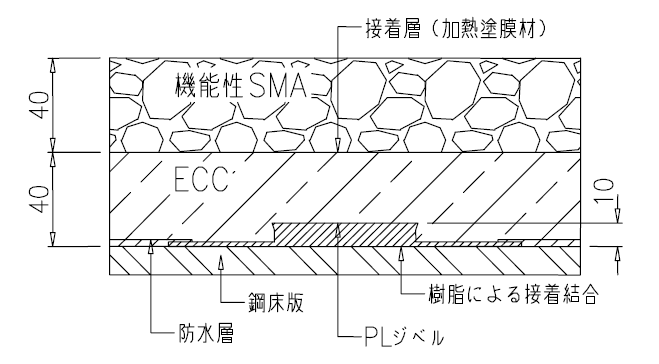
Pavement structure type
The ECC layer is pva-ecc;
PVA fiber volume content 2.0%;
Waterproof and crack resistant: the pavement layer is ECC layer (40mm) + wearing course
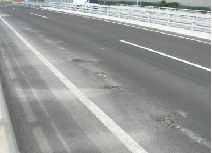
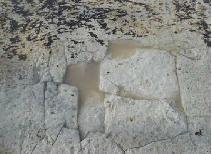
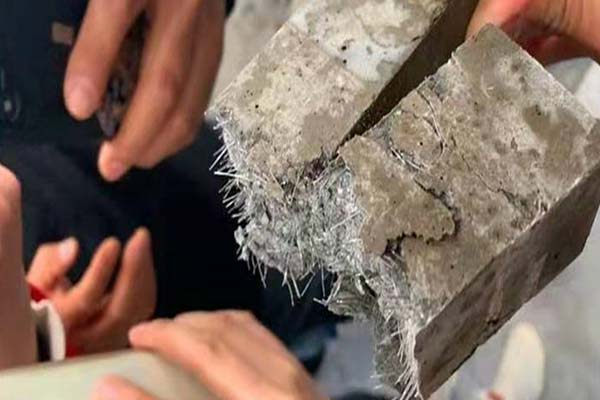
| Product model | A-ECC-30 | A-ECC-50 | A-ECC-60 | A-ECC-70 |
| compressive strength/MPa | 30 | 50 | 60 | 70 |
| tensile strength/MPa | 3.0 | 4.0 | 4.5 | 4.8 |
| Ultimate tensile strain/% | ≥3.0 | 1.2 | 1.0 | 0.8 |
| Flexural strength/MPa | 9 | 12 | 14 | 16 |
| Drying shrinkage/ | ≤600 | ≤400 | ||
| Resistance to chloride ion penetration/C | 3500 | 3000 | 2000 | 1000 |
| Frost resistance | F200 | F300 | F300 | F300 |
| It can realize early strength and fast hardening, the setting time is adjustable from 30min to 6h, and the strength of 3H / 28d is ≥ 0.5 | ||||
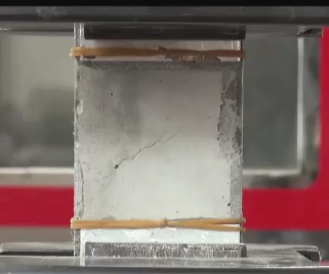
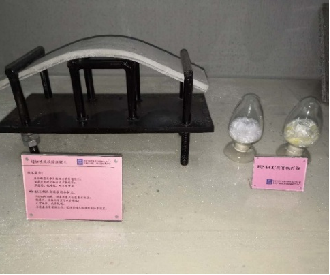
High toughness
Effectively solve the problem of pavement cracking caused by inconsistent stress and deformation caused by different thickness of pavement concrete
Low shrinkage
Effectively solve the problem of pavement cracking caused by inconsistent shrinkage between beam and pavement
Good adhesion
Effectively solve the pavement quality problems caused by falling off of reinforcement, extrusion of reinforcement mesh and ponding
Homogeneous and isotropic
Effectively solve the phenomenon of "bottom sinking" of reinforcement mesh
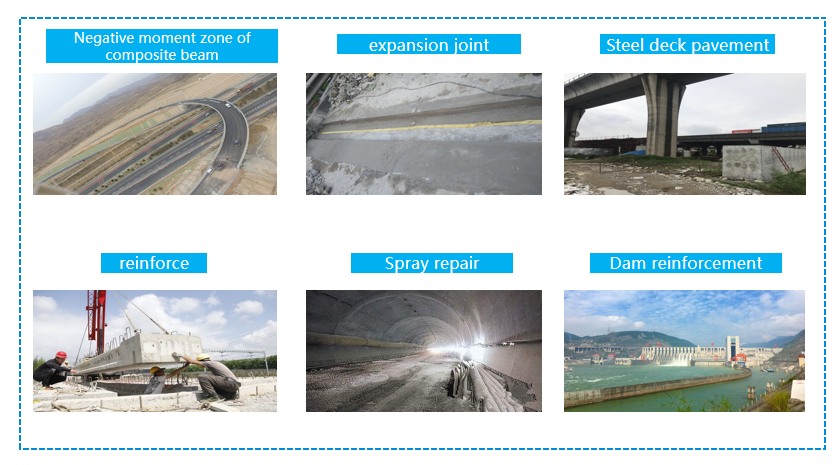


Privacy statement: Your privacy is very important to Us. Our company promises not to disclose your personal information to any external company with out your explicit permission.

Fill in more information so that we can get in touch with you faster
Privacy statement: Your privacy is very important to Us. Our company promises not to disclose your personal information to any external company with out your explicit permission.